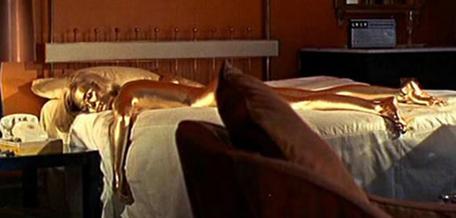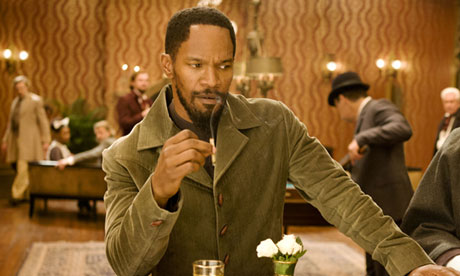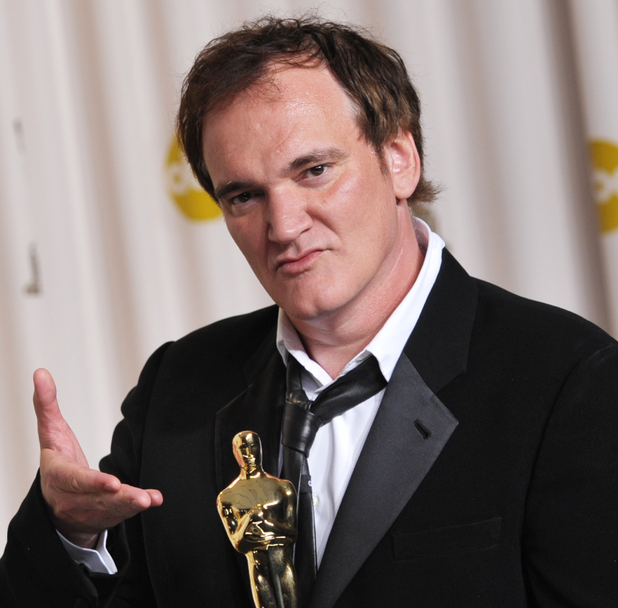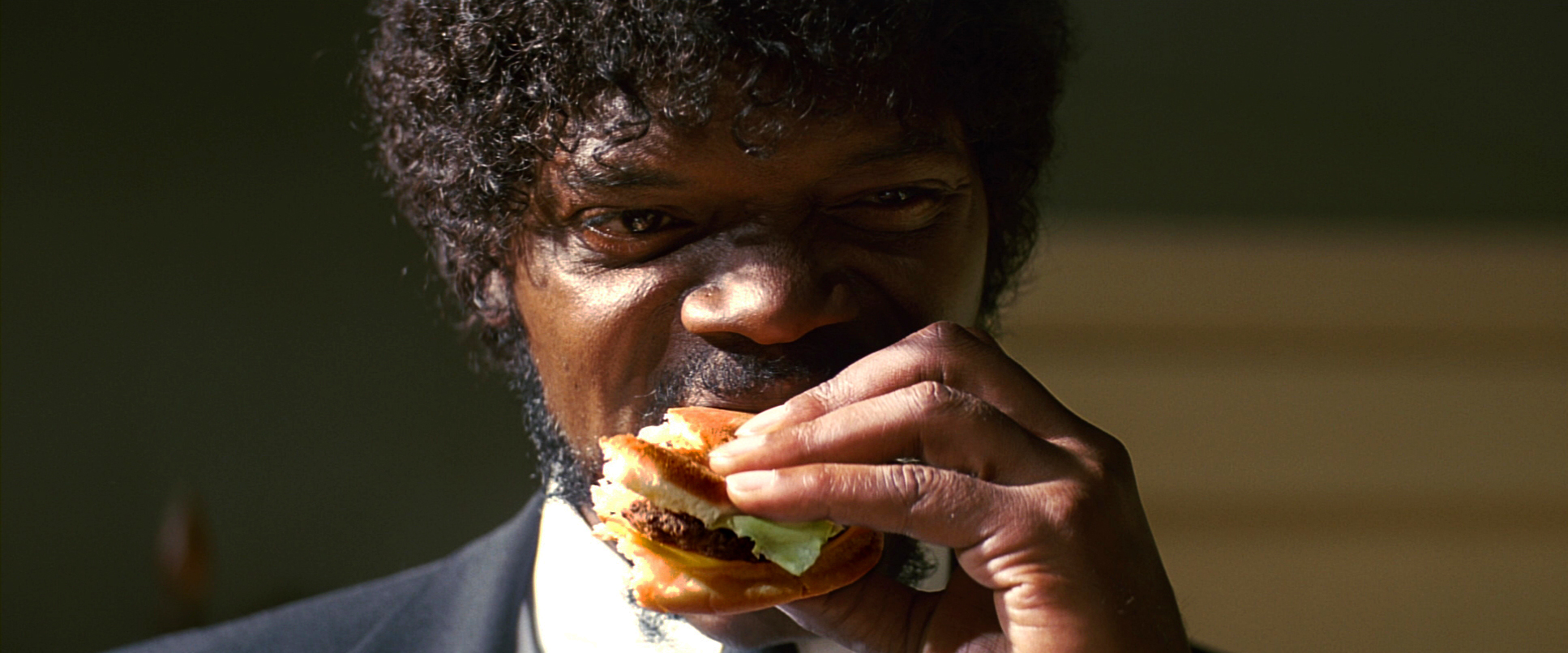Genre: Spy
Spy film is mainly a sub-genre of action and thriller, and deals with espionage, usually in a fictional way but sometimes with realistic elements thrown in. Many novels have been adapted into film, Ian Fleming's James Bond being a prime example.
The Spy genre is - in my opinion: partly responsible for the glorification of agents and espionage, with its use of 'technological thrills', often handsome, gentlemanly and sexually attractive protagonists and side-characters, and the exotic locations.
Genre is established:
'Spies' (1928)
The film, directed by Austrian 'Fritz Lang' was one of the first and most influential films in the Spy genre. Lang established many of the common conventions we see today in Spy films, such as the use of a daring and dashing agent, with a code name based on numbers '326'. He also brought the all too common use of an attractive female accomplice in Agent 326's helper 'Sonya'. The film was insisted on being cheaply made, as UFA was struggling in near bankruptcy. Luckily for Lang and UFA, 'Spies' was a huge success, and one of the most influential in starting the genre of Spy films, which even in 2005 was described as 'Inventive, delightful, superbly made spy thriller' by Michael E. Grost. Clearly 'Spies' was well ahead of its time - even as a silent film!
Classic:
'Goldfinger' (1964)
Although it was the third James Bond film made, Goldfinger was arguably the first great one - putting James Bond on just about everyone's radar. It's blending of sci-fi through gadget technology and action as well as espionage - and written as "even tenser, louder, wittier, more ingenious and more impossible than 'From Russia with Love'" (Alan Dent), and scenes going down in history like the one featuring the woman painted in gold, Goldfinger became the template for future Bond films, with charm and humour yet remaining fiercely tense and entertaining. Even modern spy film releases such as 'Casino Royale' starring Daniel Craig and 'Stormbreaker' use similar conventions to those established in Goldfinger, with each using high tech gadgets; Bond's defibrillator in his Aston Martin; Alex's metal melting zit cream. It's clear that among spy films, Goldfinger was massively influencial.
Pushes boundaries:
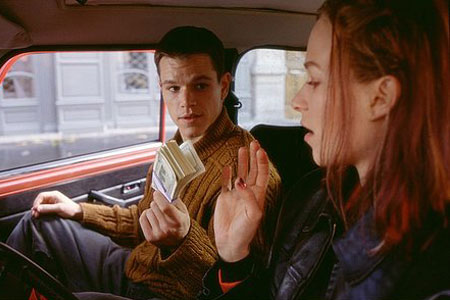 Not your typical spy film, The Bourne Identity features Matt Damon as 'Jason Bourne' - handsome, highly skilled and easy to love CIA spy, with (admittedly unconventionally) attractive 'Kreutz' as his love interest. It all sounds rather typical doesn't it? Until we learn that Jason Bourne doesn't actually know anything about himself whilst having to evade and defend himself from other CIA agents for unknown reasons. We learn that the CIA is - rather than giving Jason missions or tasks - trying to take down and kill Jason. This is unconventional for the Spy genre as usually the agent would be working on behalf of his/ her government, and having a main character who didn't even so much as know he was an agent (in the beginning) was also a different direction to your typical Spy film.
Not your typical spy film, The Bourne Identity features Matt Damon as 'Jason Bourne' - handsome, highly skilled and easy to love CIA spy, with (admittedly unconventionally) attractive 'Kreutz' as his love interest. It all sounds rather typical doesn't it? Until we learn that Jason Bourne doesn't actually know anything about himself whilst having to evade and defend himself from other CIA agents for unknown reasons. We learn that the CIA is - rather than giving Jason missions or tasks - trying to take down and kill Jason. This is unconventional for the Spy genre as usually the agent would be working on behalf of his/ her government, and having a main character who didn't even so much as know he was an agent (in the beginning) was also a different direction to your typical Spy film.
'The Bourne Identity' (2002)
 Not your typical spy film, The Bourne Identity features Matt Damon as 'Jason Bourne' - handsome, highly skilled and easy to love CIA spy, with (admittedly unconventionally) attractive 'Kreutz' as his love interest. It all sounds rather typical doesn't it? Until we learn that Jason Bourne doesn't actually know anything about himself whilst having to evade and defend himself from other CIA agents for unknown reasons. We learn that the CIA is - rather than giving Jason missions or tasks - trying to take down and kill Jason. This is unconventional for the Spy genre as usually the agent would be working on behalf of his/ her government, and having a main character who didn't even so much as know he was an agent (in the beginning) was also a different direction to your typical Spy film.
Not your typical spy film, The Bourne Identity features Matt Damon as 'Jason Bourne' - handsome, highly skilled and easy to love CIA spy, with (admittedly unconventionally) attractive 'Kreutz' as his love interest. It all sounds rather typical doesn't it? Until we learn that Jason Bourne doesn't actually know anything about himself whilst having to evade and defend himself from other CIA agents for unknown reasons. We learn that the CIA is - rather than giving Jason missions or tasks - trying to take down and kill Jason. This is unconventional for the Spy genre as usually the agent would be working on behalf of his/ her government, and having a main character who didn't even so much as know he was an agent (in the beginning) was also a different direction to your typical Spy film.
Despite the radically different structure and plot used in The Bourne Identity, many critics praised it for being 'Intelligent' and for being a 'thriller with some brains and feeling behind it, more attuned to story and character than to spectacle' - Charles Taylor. The Bourne Identity was seemingly seen as more realistic than other films in the Spy genre like the often tongue-in-cheek James Bond films. The trade off on spectacle for realism may have been seen as a negative for some however, such as Ed Gonzalez of Slant Magazine, who stated that the film was 'smart, but not smart enough'.
Parody:
'Austin Powers: International Man of Mystery' (1997)
One of the most famous of the parodies of the Spy genre is the first installment to the Austin Powers series. A cast featuring Mike Myres as 'Austin Powers' and ... Mike Myres... again - as 'Dr Evil', AP: IMoM regularly pokes fun at the genre signifiers of Spy films, such as an evil mastermind (heavily influenced and parodying 'Ernst Stavro Blofeld' or 'Number 1' from James Bond, with his cat, appearance and even his chair amongst others), the cliche of a handsome, tough, manly and mysterious superspy - which is humourously contrasted by Mike Myres, as his character of Austin Powers is the polar opposite yet still maintains the ridiculous irresistible-to-women nature seen in many spy films.
Another instance of IMoM parodying the spy film genre is the scene when Austin guesses to his typically gorgeous accomplice that the kit handed to him of dentistry gear is are actually advanced gadgets in disguise - to which she tells him that in fact there has just been advancements in dentistry during his time frozen cryogenically (yes, even that happened!).
The shallowness of the characters in typical spy films was also mocked by the Austin Powers series with the second film, in which the first film's love interest is quickly found out to have actually been an evil robot all along, before destroying the robot without much. Austin Powers has been praised by some critics "It would take a stone face not to crumple at Austin's dodgy catchphrases and irrepressible sexual desperation." - Trevor Johnston of Time Out, whilst criticized by other critics, with Maitland McDonagh from TV Guide's Movie Guide claiming that "The bad news is that it's a one-joke picture" with all of the obvious sexual innuendos and 'Groovy baby!' lines.

